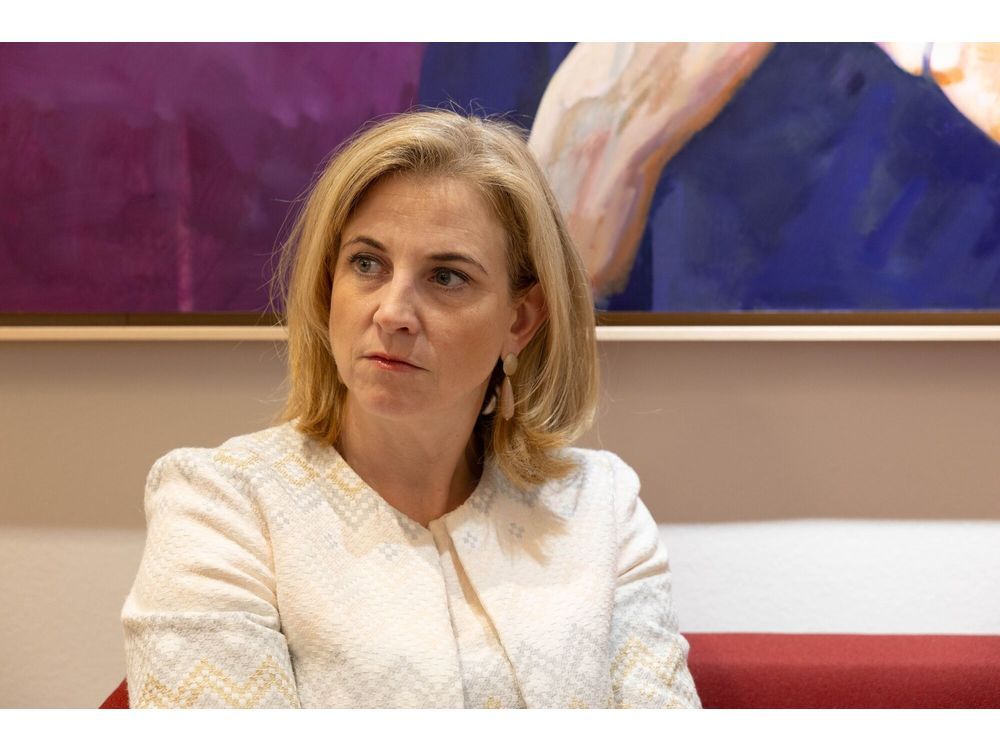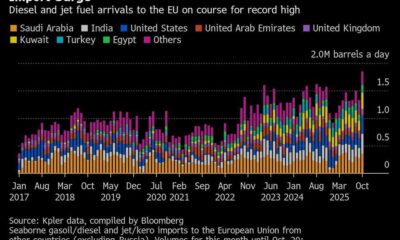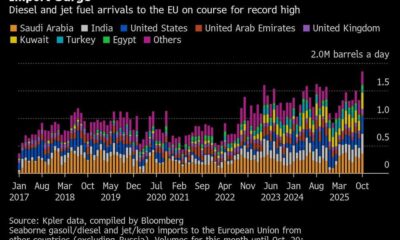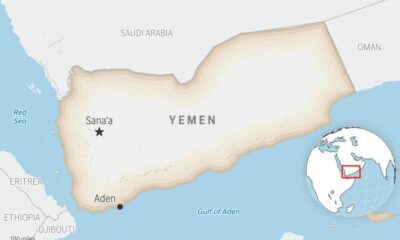Top Stories
Austria Aims for Global Diplomacy Role Amid Ongoing Conflicts

UPDATE: Austria is positioning itself as a pivotal player in global diplomacy, with Foreign Minister Beate Meinl-Reisinger emphasizing the importance of maintaining the nation’s military neutrality amidst escalating regional conflicts. As tensions rise in Europe, Austria is campaigning for a seat on the United Nations Security Council and offering to host peace talks between Russia and Ukraine.
Meinl-Reisinger, who took office in March 2023, is advocating for a return to negotiations regarding Iran’s nuclear program. Her proactive approach aims to enhance Austria’s relevance on the international stage, particularly as its economic and political influence has waned during its longest recession since World War II.
In a recent interview, Meinl-Reisinger declared, “There is an advantage to not being a member of NATO. This is a certain understanding that you always have to stick to dialogue.” Her comments come as Austria seeks to revive its historical role as a diplomatic hub, reminiscent of its past when it facilitated communication across Europe.
Despite the ongoing war in Ukraine, which is alarmingly close to Austria’s borders, Meinl-Reisinger insists that neutrality remains a cornerstone of the country’s foreign policy. This stance has gained traction among Austrians, who still cherish the military non-alignment established by the 1955 State Treaty, allowing the country to maintain independence post-World War II.
However, this neutrality raises critical questions. Areas of western Ukraine, impacted by Russian strikes, are closer to Vienna than some Austrian provinces. Austria relies on NATO’s security assurances from neighboring countries like Slovakia and Hungary to shield itself from potential threats. Notably, Austria’s defense spending is approximately 1% of its GDP, significantly lower than other European nations like Poland.
Meinl-Reisinger firmly stated, “We are not a NATO member, and I’m not in favor of joining NATO. What we should talk about is adapting our security strategy to new realities.” She emphasized that neutrality should not be a pretext for pro-Russian policies, especially as the far-right Freedom Party continues to advocate for a strict interpretation of neutrality.
The Freedom Party, which garnered the most votes in the 2024 federal elections, opposes non-military aid to Ukraine and sanctions against Russia. Despite its political influence, it was sidelined from governing in favor of a coalition that includes conservatives, social democrats, and Meinl-Reisinger’s liberals.
While Austria hosts vital international organizations like the Organization for Security and Co-operation in Europe and the International Atomic Energy Agency, it also faces scrutiny for its ties to Russian interests. Some of Russia’s wealthiest individuals have property in Austria, and Raiffeisen Bank International AG has been criticized for its continued operations in Russia.
Meinl-Reisinger has faced opposition from figures like Karin Kneissl, a former foreign minister turned critic, who argues that any modification to Austria’s neutrality would require agreement from countries like Russia. “It’s only up to the Austrian people to decide what kind of security strategy and policy Austria is conveying,” she countered, asserting that Austria has already moved towards closer defense cooperation within the European Union since its accession in 1995.
As Austria embarks on this diplomatic journey, the world watches closely. The implications of its stance on neutrality could reshape its role in international affairs, especially in the context of ongoing geopolitical tensions. The next steps for Austria could be decisive in determining its future as a mediator in global crises.
Stay tuned for further developments as Austria navigates its complex diplomatic landscape.
-

 World3 months ago
World3 months agoScientists Unearth Ancient Antarctic Ice to Unlock Climate Secrets
-

 Entertainment4 months ago
Entertainment4 months agoTrump and McCormick to Announce $70 Billion Energy Investments
-

 Lifestyle4 months ago
Lifestyle4 months agoTransLink Launches Food Truck Program to Boost Revenue in Vancouver
-

 Science4 months ago
Science4 months agoFour Astronauts Return to Earth After International Space Station Mission
-

 Technology2 months ago
Technology2 months agoApple Notes Enhances Functionality with Markdown Support in macOS 26
-

 Top Stories3 weeks ago
Top Stories3 weeks agoUrgent Update: Fatal Crash on Highway 99 Claims Life of Pitt Meadows Man
-

 Sports4 months ago
Sports4 months agoSearch Underway for Missing Hunter Amid Hokkaido Bear Emergency
-

 Politics3 months ago
Politics3 months agoUkrainian Tennis Star Elina Svitolina Faces Death Threats Online
-

 Technology4 months ago
Technology4 months agoFrosthaven Launches Early Access on July 31, 2025
-

 Politics3 months ago
Politics3 months agoCarney Engages First Nations Leaders at Development Law Summit
-

 Entertainment4 months ago
Entertainment4 months agoCalgary Theatre Troupe Revives Magic at Winnipeg Fringe Festival
-

 Top Stories6 days ago
Top Stories6 days agoFamily Remembers Beverley Rowbotham 25 Years After Murder




















